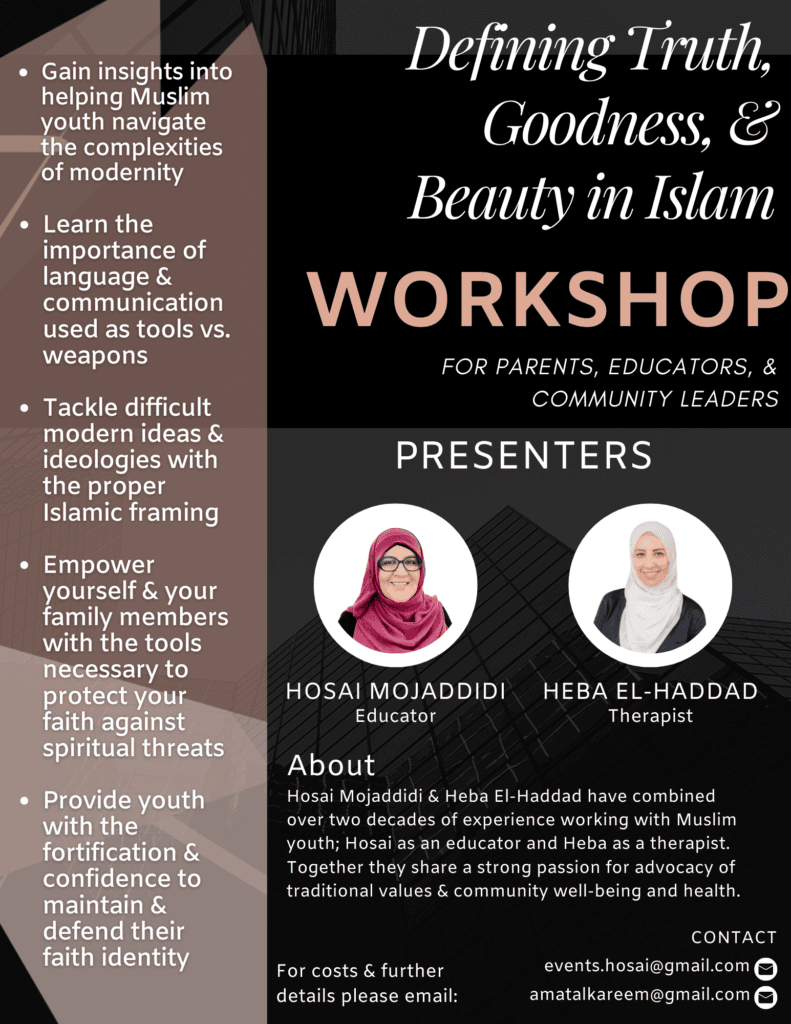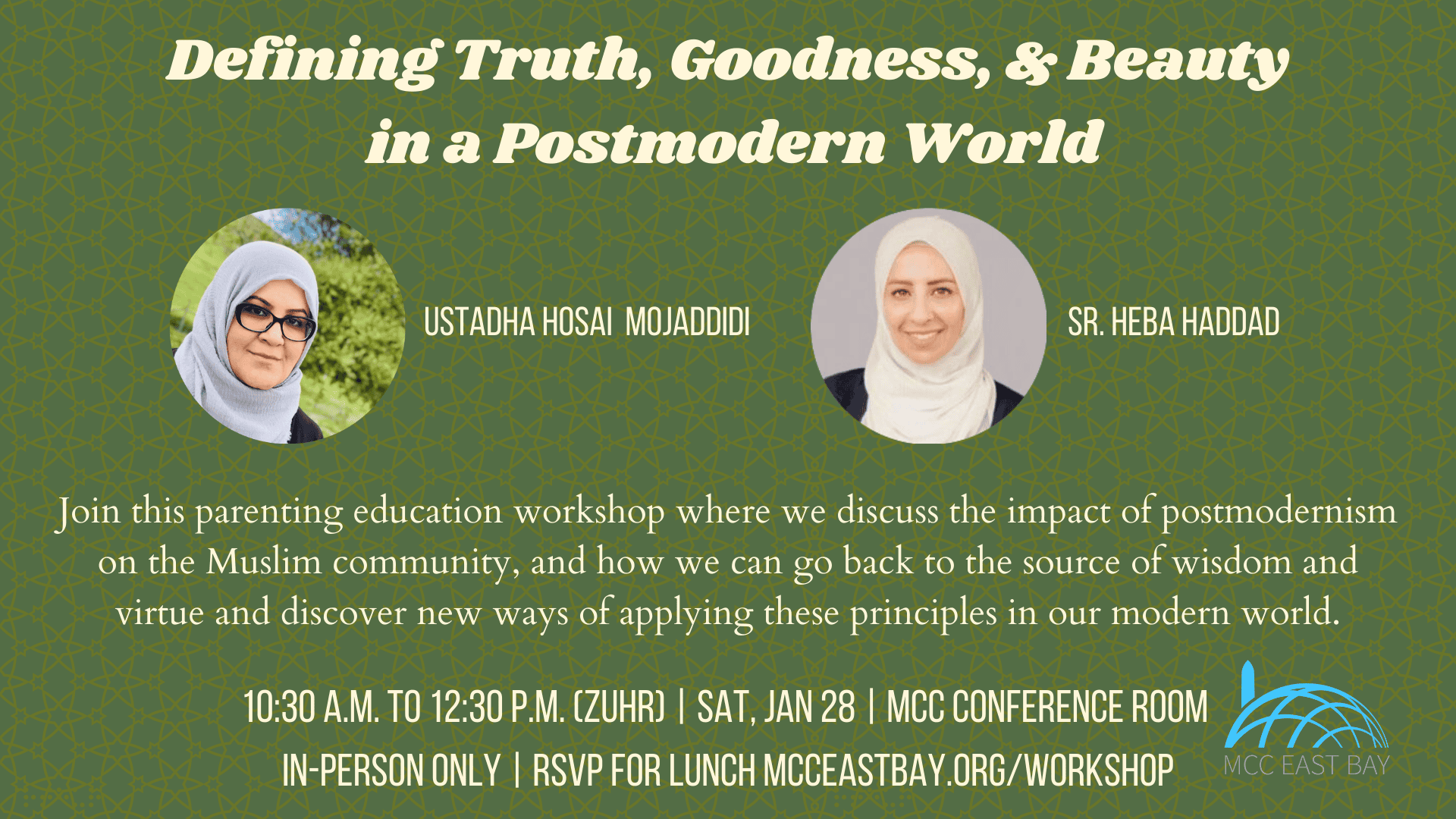Join Ustadha Hosai Mojaddidi and Sr. Heba Haddad as we discuss the impact of postmodernism on the Muslim community.
This parenting education workshop is with the spirit of a conversation on the sound upbringing of children in the modern world and to go back to the source of wisdom and virtue and discover new ways of applying these principles in our modern world. The speakers will provide ample time for Q&A!
10:30 a.m. to 12:30 p.m. (Zuhr) | Saturday, January 28, 2023 | MCC Conference Room (event not live-streamed; please join in-person only) | Adults & Mature Older Teens Only | RSVP required at https://mcceastbay.org/workshop
- – Ustadha Hosai: https://mcceastbay.org/hosai
- – Sr. Heba: https://mcceastbay.org/heba
- – Islamic Parenting talks: https://mcceastbay.org/parenting
- – More Islam for kids: https://mcceastbay.org/kids
The workshop is dynamic and interactive and will cover relevant historical points, critical data analysis, and helpful tips for dialogue and advocacy around political agendas and movements.
Questions? events@mcceastbay.org
Examining the current zeitgeist and the broad tentacles of nihilism, atheism, and secularism, we must act swiftly to help prepare our youth for the challenges they face due to the rapid cultural changes happening all around them.
This workshop will cover key contemporary issues impacting youth, families, schooling, and social media.
The target audience is parents, educators, community members, and youth who are active in their community.
The workshop is dynamic and interactive and will cover relevant historical points, critical data analysis, and helpful tips for dialogue and advocacy around political agendas and movements.
- – Gain insights into helping Muslim youth navigate the complexities of modernity;
- – Learn the importance of language and communication used as tools versus weapons;
- – Tackle challenging modern ideas and ideologies with the proper Islamic framing;
- – Empower yourself and your family members with the tools necessary to protect your faith against spiritual threats;
- – Provide youth with fortification and confidence to maintain and defend their faith identity.
About the Speakers
Heba El-Haddad has been a mental health practitioner at the Khalil Center since its inception in the Bay Area. She is also an affiliate of Stanford Muslim Mental Health Lab, which provides resources for clinicians, researchers, and community leaders working with the Muslim population. Believing that prevention is superior to intervention, Heba has worked on promoting awareness on a broad spectrum of topics ranging from anxiety to anger management through seminars, workshops, and lectures and her previous role as a mental health instructor at Kaiser Permanente. She believes that psychoeducation can empower and transform communities, not just individuals. Heba is part of a group of clinicians and scholars who contributed to publishing a text introducing interventions utilizing the Traditional Islamically Integrated Psychotherapy model (TIIP) to Muslim practitioners nationwide and is a TIIP practitioner herself. She perceives learning as a never-ending process and continuously seeks to further her self-development.
Ustadha Hosai Mojaddidi was born in Afghanistan and moved to the United States with her family at age two. She credited her Islamic journey to 1996 when she began attending Islamic classes in Hayward, California. These classes were taught by her teacher and mentor since then, Shaykh Hamza Yusuf.
One of her main areas of focus is to help create a strong sisterhood for the women in the community by leading halaqas (spiritual study circles) and support groups while offering individual spiritual counseling and mentoring. She noted that many spiritual problems reflected the community’s deep and complicated mental health issues and would be better served by focusing on mental health. Thus, along with her cousin, Dr. Nafisa Sekandari, co-founded a website called Mental Health 4 Muslims (www.mentalhealth4muslims.com).




